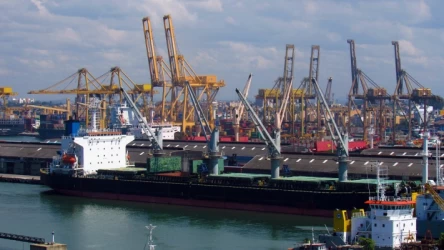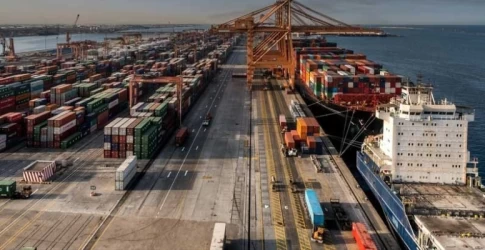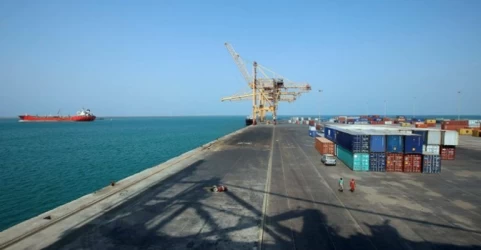Guide to trade with Bangladesh, sea freight
Bangladesh, a rapidly developing country in South Asia, has emerged as a significant player in the global economy. With a population of over 160 million people and a growing industrial base, it presents various opportunities for international businesses. The country’s strategic location, access to the Bay of Bengal, and competitive workforce have made it an attractive hub for trade and commerce. This guide aims to provide comprehensive insights into trading with Bangladesh, focusing on maritime transport, regulations, and essential considerations for businesses.
1. Overview of Bangladesh’s Economy
Bangladesh has a diverse economy primarily driven by agriculture, textiles, manufacturing, and growing sectors such as technology and pharmaceuticals. In recent years, the country has become a global leader in garment production, making it one of the largest exporters of ready-made garments (RMG) in the world.
Key Industries
- Textiles and Garments: Bangladesh’s textile sector is its most important industry, accounting for around 80% of total exports. The country is a major exporter of clothing to the US and EU markets, leveraging its low-cost labor and vast manufacturing base.
- Agriculture: The agricultural sector remains crucial for the country, with rice, jute, tea, and fish being major exports.
- Pharmaceuticals and Technology: The pharmaceutical industry in Bangladesh has grown considerably, with several companies gaining international accreditation. The country is also gradually making strides in the technology sector.
Economic Growth
Bangladesh has experienced steady economic growth over the past decade, with GDP growth rates averaging 6-8% annually. Its economic strategy focuses on export diversification, infrastructure development, and attracting foreign investment, especially in special economic zones (SEZs).
2. Trade Regulations in Bangladesh
Understanding the legal and regulatory framework for trade in Bangladesh is essential for ensuring smooth transactions. Bangladesh has established a relatively straightforward set of regulations for international traders, but it’s important to navigate these effectively to avoid any complications.
Import and Export Licensing
To trade with Bangladesh, businesses must obtain the necessary import and export licenses from the Bangladesh Trade Portal and the Ministry of Commerce. Additionally, companies may need to register with the Export Promotion Bureau (EPB) for specific goods like garments, electronics, and certain agricultural products.
Taxes and Tariffs
- Value Added Tax (VAT): All imported goods are subject to VAT, which generally ranges from 10% to 15%, depending on the product category.
- Customs Duties: Tariffs are applied to a wide range of imports, especially luxury goods and electronics. Duties can range between 5% and 25%, depending on the classification of the product.
Standards and Compliance
Bangladesh has specific standards for safety, quality, and environmental protection. Goods entering the country must comply with these standards, especially food products and electronics. Non-compliance can result in delays or rejection of goods at customs.
3. Maritime Transport in Bangladesh
Maritime transport plays a pivotal role in Bangladesh’s trade operations. With its location on the Bay of Bengal, Bangladesh has access to major international shipping routes, facilitating the import and export of goods across Asia, Europe, and beyond.
Major Ports in Bangladesh
- Chittagong Port (Chattogram): The largest and most significant port in Bangladesh, handling over 90% of the country's total seaborne trade. Chittagong Port is equipped with modern facilities for handling containers, bulk cargo, and other goods.
- Mongla Port: Located in the southwestern part of the country, Mongla Port is the second busiest port. It is essential for handling goods from the western regions of Bangladesh and is often used for the export of agricultural products, leather, and raw materials.
Shipping Companies Operating in Bangladesh
Several major international shipping companies operate in Bangladesh, providing reliable freight services to and from the country:
- Maersk Line
- MSC (Mediterranean Shipping Company)
- CMA CGM
- Evergreen Marine
These companies offer container shipping services as well as specialized transport for bulk and liquid cargo.
The Shipping Process
When shipping goods to Bangladesh, it is essential to follow a clear process to ensure smooth delivery and customs clearance:
- Preparation and Documentation: The shipment process begins with proper documentation, including commercial invoices, bills of lading, packing lists, and certificates of origin. These documents are required for customs clearance upon arrival.
- Shipping and Transit: Depending on the origin and destination, shipping times can vary. For example, shipments from Europe to Chittagong may take around 20-30 days, while shipments from neighboring countries like India and Sri Lanka are much faster.
- Customs Clearance: Upon arrival at Chittagong or Mongla, goods must go through customs clearance. Providing all necessary documents upfront and ensuring compliance with regulations helps avoid delays.
- Inland Transport: After clearing customs, goods are transported via road or rail to their final destination in Bangladesh. Efficient logistics and supply chain management are crucial for ensuring timely delivery.
Shipping Costs
The cost of shipping to Bangladesh depends on several factors, including the size and weight of the shipment, the shipping route, and the type of goods. Containerized cargo is generally more cost-effective for larger shipments, while smaller shipments may require less-than-container-load (LCL) options.
4. Advantages of Trading with Bangladesh
There are numerous benefits to establishing trade relations with Bangladesh, especially in sectors like textiles, agriculture, and manufacturing. Some of the key advantages include:
- Competitive Labor Costs: Bangladesh offers one of the most affordable labor markets in the world, especially in the garment sector. This makes it an attractive destination for companies looking to outsource production.
- Growing Consumer Market: With a large population and increasing disposable income, Bangladesh is becoming an increasingly attractive market for consumer goods, electronics, and industrial products.
- Strategic Location: Bangladesh’s access to the Bay of Bengal and proximity to major trade routes in Asia make it an important hub for international trade.
- Investment Incentives: The government of Bangladesh has implemented various incentives for foreign investors, including tax holidays, exemptions on import duties for raw materials, and access to special economic zones (SEZs).
5. Challenges in Trading with Bangladesh
Despite the numerous opportunities, trading with Bangladesh comes with certain challenges:
- Infrastructure Issues: Bangladesh is still developing its infrastructure, including ports, roads, and railways. Congestion at ports, particularly at Chittagong, can sometimes cause delays.
- Regulatory Environment: The trade regulations and bureaucratic procedures in Bangladesh can be complex and time-consuming. It’s essential to work with local partners and customs agents to navigate the system effectively.
- Corruption: Corruption in customs and local government can sometimes present challenges for businesses. Ensuring transparency and compliance with local laws is critical.
Conclusion
Bangladesh offers tremendous potential for businesses looking to expand into new markets or set up manufacturing operations. Its competitive labor market, growing economy, and strategic location make it a key player in the global trade network. However, it is essential to understand the regulatory framework, customs procedures, and maritime transport logistics to ensure success.
By partnering with reliable shipping companies and gaining a deep understanding of the trade regulations, businesses can tap into the growing opportunities in Bangladesh and establish long-term, profitable trade relationships.
If you have any specific questions or need further assistance, feel free to ask!











